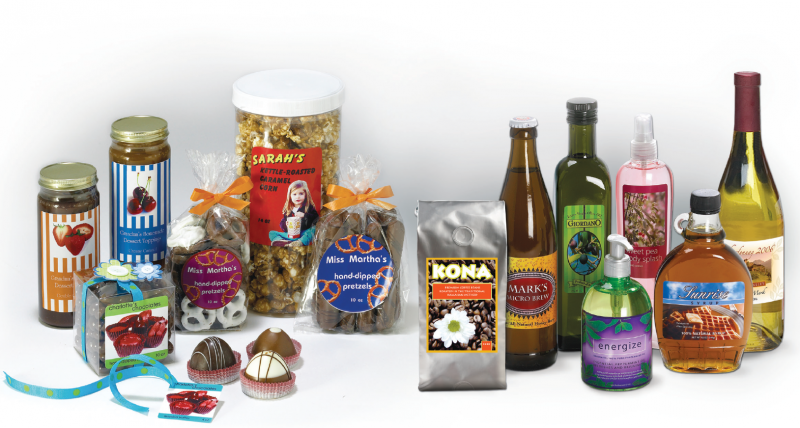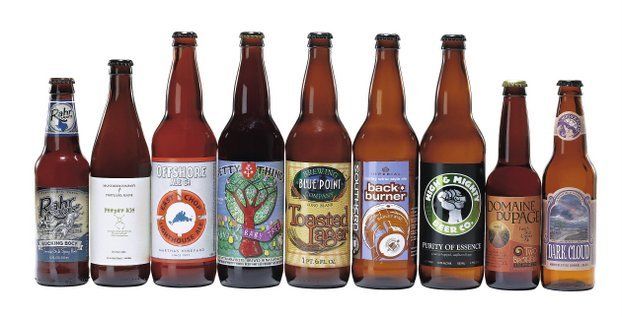With 18 years experience of label manufacturing, we provide labels that make that critical connection between your product and your desired customer.

Whether it is plain labels for print-your-own applications, or full colour bespoke printed labels, we have a range of printing methods available to cover all requirements.
But when thinking of labels, its not just the visual aesthetic that needs to be took into consideration. Does your product spend long periods of time in storage, in direct sunlight, extreme temperatures or any other issues that could possibly cause your labels too peel or fade?
We have compiled a list of our different labels before so you can understand each type further before making your choice.
Black/Plain Labels
We produce blank labels to every industry for thousands of business across the UK and beyond. With over 20 years experience of manufacturing labels we are trusted time and again to deliver the highest quality labels with our second to none service.

Standard Direct Thermal Labels
Thermal material for short term use, very limited resistance to marking or smudging and contact should be avoided with moisture, oil and fats.
Direct thermal labels are ideal for short life retail and logistics applications and can be used to print price markdown labels, address, product, courier and postage labels.
Direct Thermal Top Coated Labels
Offers a protective surface coat on one side ensuring the labels are more resistant to marking, are more resistant to fading in sunlight and are smudge-proof, solvent and grease resistant.
Top coated direct thermal labels resistant to grease. Ideal applications include weight labels (meat packers, supermarkets), price marking labels (excellent print of EAN and UPC-codes) or frozen food labels with a freezer adhesive.

Semi Gloss Labels
Also known as mid-gloss, this is possibly the most common thermal transfer material, being low cost, providing good print quality and looking good from a presentation point of view.
Ideal for use in environments where print needs to be longer lasting and may be exposed to direct sunlight. Typical applications include product identification, work in progress, shipping labels and pharmaceutical.
Matt White Labels
The lowest cost label material, most popular types are uncoated papers (also known as litho or vellum) suitable for high volume printing. More expensive options, which provide a better print quality are smoother versions (calendared) and coated matt papers. The main disadvantage of matt uncoated papers is that they can mark easily.
Ideal for labelling of packaging boxes and pallets, product identification, picking and receiving.

Polyester Labels
Polyester (PET) films are suited to high quality long lasting applications requiring resistance to heat, water, oil and chemicals.
Typical applications include asset and serial number labels, cosmetics, appliances, electrical equipment and instruments, instruction tags on home and industrial utilities, drum and logistics labelling.
Polyethylene Labels
Polyethylene (PE) films are suited to applications that require resistance to water, oil and chemicals.
They conform well to package contours and flex well with squeezable packaging. Common applications include labelling test tubes, vials, chemical drums and products with a highly curved surface.
Polypropylene Labels
Polypropylene (PP) films are suited to applications requiring resistance to water, oil and chemicals. Polypropylene labels offer a long term solution to labelling packaging materials, patient and laboratory samples and tear-resistant shelf edge labels.
Available in white, silver and transparent, polypropylene labels are durable and can be used to achieve long-term sustainability within labelling beverages, personal care, toiletries and cosmetics. Transparent polypropylene labels are typically used in rigid bottle applications to achieve the ‘no-label look’.

Direct Thermal Label Materials
Direct thermal materials comprise of a heat sensitive coating on paper or synthetic material, which when heated through a direct thermal printer, creates print by burning an image (text, images and barcodes) directly onto a label.
Thermal material for short term use, very limited resistance to marking or smudging and contact should be avoided with moisture, oil and fats.
• Labels
Direct thermal labels, ideal for short life retail and logistics applications and can be used to print price markdown labels, address, product, courier and postage labels.
• Card Tags
Thermal card tags with up to 250 micron thickness and are best suited for indoor applications with moderate temperatures. Ideal for use in packaging inserts, food trays, shop floor tracking tickets and pallet tags.
• Receipt Paper
Low cost receipt paper for short term use. Ideal for mobile receipt printing, delivery note printing and payment receipt printing. Long term storage and high temperature resistant receipt paper available for mobile delivery notes, service recording, electronic citations, parking fines and invoice printing applications.
Direct Thermal Top Coated
Offers a protective surface coat on one side ensuring the labels are more resistant to marking, are more resistant to fading in sunlight and are smudge-proof, solvent and grease resistant.
• Labels
Top coated direct thermal labels resistant to grease. Ideal applications include weight labels (meat packers, supermarkets), price marking labels (excellent print of EAN and UPC-codes) or frozen food labels with a freezer adhesive.
• Card Tags
Thermal card tags with up to 250 micron thickness and are best suited for applications that require some resistance against scratching and sunlight. Ideal for visitor identification tags, pallet tags, shop floor tracking tickets and shelf edge tags.
Thermal Transfer Label Materials
Semi Gloss Material
Also known as mid-gloss, this is possibly the most common thermal transfer material, being low cost, providing good print quality and looking good from a presentation point of view.
Ideal for use in environments where print needs to be longer lasting and may be exposed to direct sunlight. Typical applications include product identification, work in progress, shipping labels and pharmaceutical.
Matt White Label Material
The lowest cost label material, most popular types are uncoated papers (also known as litho or vellum) suitable for high volume printing. More expensive options, which provide a better print quality are smoother versions (calendared) and coated matt papers. The main disadvantage of matt uncoated papers is that they can mark easily.
Ideal for labelling of packaging boxes and pallets, product identification, picking and receiving.
Synthetic Label Materials
Polyester Label Material
Polyester (PET) films are suited to high quality long lasting applications requiring resistance to heat, water, oil and chemicals. Typical applications include asset and serial number labels, cosmetics, appliances, electrical equipment and instruments, instruction tags on home and industrial utilities, drum and logistics labelling.
Polyethylene Label Materials
Polyethylene (PE) films are suited to applications that require resistance to water, oil and chemicals. They conform well to package contours and flex well with squeezable packaging. Common applications include labelling test tubes, vials, chemical drums and products with a highly curved surface.
Polypropylene Label Materials
Polypropylene (PP) films are suited to applications requiring resistance to water, oil and chemicals. Polypropylene labels offer a long term solution to labelling packaging materials, patient and laboratory samples and tear-resistant shelf edge labels. Available in white, silver and transparent, polypropylene labels are durable and can be used to achieve long-term sustainability within labelling beverages, personal care, toiletries and cosmetics. Transparent polypropylene labels are typically used in rigid bottle applications to achieve the ‘no-label look’.
Permanent Adhesive
Standard permanent adhesive is suitable for the majority of applications that require a label to be applied and not removed. Standard permanent adhesive is suitable for non-polar surfaces, films, and corrugated board, but not recommended for labelling highly curved surfaces.
Removable Adhesive
Standard removable adhesive is suitable for the majority of applications that require a label to be applied and removed at a later date. Ideal for companies applying pricing labels to products that are sold as gifts and labels that are used to seal products.
Freezer Adhesive
Freezer or deep freeze adhesive is a permanent adhesive designed for companies that are labelling items that need to be stored in cold storage, fridge or freezer environments.
The things to consider when choosing freezer adhesive labels are what temperature conditions you will be applying the labels and where they will be stored throughout your process.
High Tack Adhesive
High tack adhesive is a strong permanent adhesive that is used when you have difficult surfaces to apply onto, e.g. plastic surfaces, or if you need the label to be extremely difficult to remove, e.g. asset labelling.
There are plenty more finishes, adhesives and other types of labels that we do supply. If you are unsure of what label is right for you, simply contact us today on [email protected]/(01536) 414222 and one of our expert team will guide you the whole way - we can even supply you with samples so you can see the finished products!
